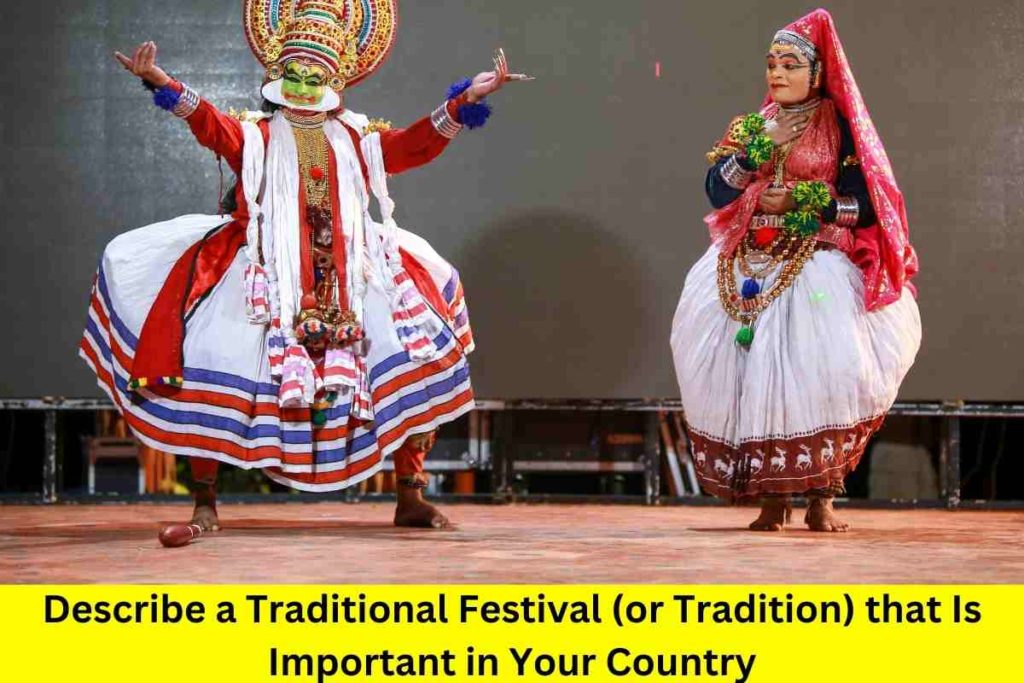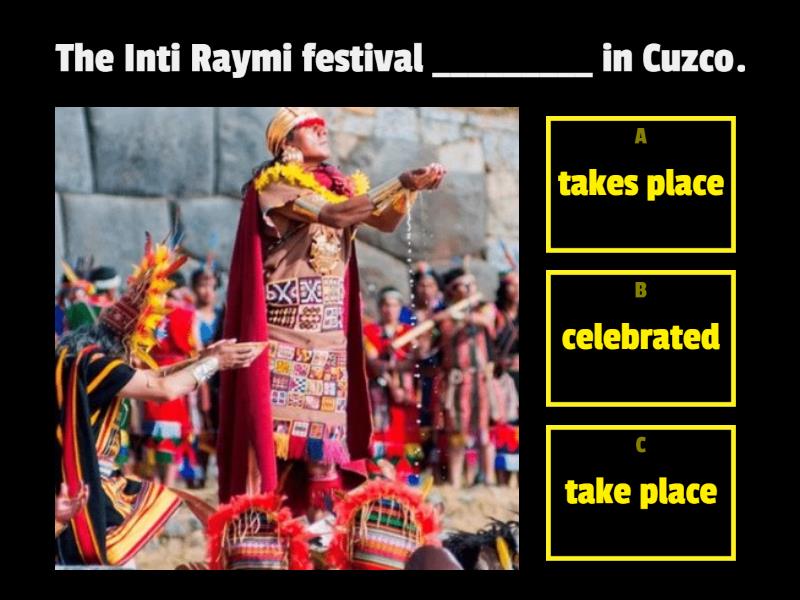Festivals with Roots in Centuries-Old Traditions invite us to explore the vibrant tapestry of human culture, where ancient customs blend seamlessly with modern celebrations. These festivals not only serve as a window into the past but also highlight the enduring significance of traditions that have stood the test of time. From colorful parades to solemn rituals, these events reflect the rich heritage of various societies around the globe, showcasing how communities come together to honor their history and values.
As we delve deeper into this topic, we will uncover the various elements that define these festivals, their origins, and the ways they continue to evolve while preserving their unique cultural significance. Each festival tells a story, connecting generations and bridging gaps between the past and the present.

Welcome to the intriguing realm of anthropology! As we delve into this field, we uncover the myriad ways humans have evolved, adapted, and interacted throughout history. Anthropology is not just a study of ancient artifacts or cultures; it’s a holistic examination of what it means to be human. In this post, we will explore various aspects of anthropology, including its subfields, methodologies, and some captivating case studies that highlight the richness of human experience.
Understanding Anthropology
At its core, anthropology is the study of humans, their behaviors, cultures, societies, and the biological aspects that shape them. The field is traditionally divided into four primary subfields:

- Cultural Anthropology: This branch examines contemporary cultures and their practices. Cultural anthropologists often immerse themselves in communities to understand their customs, traditions, and social dynamics. They utilize participant observation, interviews, and surveys to gather rich qualitative data.
- Archaeology: Archaeologists study past human societies through material remains. They excavate sites, analyze artifacts, and reconstruct ancient cultures to gain insights into the lives of those who came before us. This subfield often intersects with historical studies, offering a deep dive into our shared past.
- Linguistic Anthropology: This area focuses on the relationship between language and culture. Linguistic anthropologists investigate how language shapes social life, identity, and communication practices. They explore dialects, language structures, and the impact of globalization on linguistic diversity.
- Biological Anthropology: Also known as physical anthropology, this subfield studies the biological aspects of humans, including evolution, genetics, and health. Biological anthropologists examine human remains, evolutionary processes, and the impact of environment on our biological makeup.
The Methodologies of Anthropology
One of the fascinating aspects of anthropology is its diverse methodologies. Unlike many scientific disciplines that rely heavily on quantitative data, anthropology embraces a mix of qualitative and quantitative approaches. Here are some common methods used in anthropological research:
- Participant Observation: This method involves the anthropologist immersing themselves in the community they study. By participating in daily activities, they gain firsthand experience and insights that enrich their understanding of the culture.
- Interviews: Conducting interviews allows anthropologists to gather personal narratives and perspectives from individuals within a culture. This qualitative data can illuminate the complexities of social interactions and individual experiences.
- Surveys: While less common in anthropology, surveys can be used to gather quantitative data about cultural practices, beliefs, and demographics. This data can complement qualitative findings and provide a broader context.
- Fieldwork: Fieldwork is an essential component of anthropological research. It enables scholars to collect data in natural settings, fostering a deeper understanding of the subject matter. Fieldwork can range from a few months to several years, depending on the research focus.
Case Studies: Anthropology in Action
To truly appreciate anthropology, let’s explore a couple of fascinating case studies that exemplify its importance in understanding humanity.
The !Kung San of the Kalahari Desert
The !Kung San people, often referred to as Bushmen, have lived in the Kalahari Desert for thousands of years. Cultural anthropologists have studied their hunter-gatherer lifestyle, which emphasizes communal living and deep respect for nature. One notable researcher, Richard B. Lee, conducted extensive fieldwork among the !Kung San in the 1960s. He documented their social structures, subsistence patterns, and the importance of sharing resources.
Lee’s work highlighted how the !Kung San maintain a sustainable lifestyle, relying on their extensive knowledge of the environment. Despite external pressures from modernization and land encroachment, the !Kung San continue to adapt while preserving their cultural identity. This case study illustrates the resilience of indigenous cultures and the invaluable insights anthropology provides into sustainable practices.
The Rise of Globalization and Its Impact on Culture, Festivals with Roots in Centuries-Old Traditions
Another significant area of study in anthropology is the impact of globalization on local cultures. Anthropologists have observed how global forces—such as technology, migration, and trade—transform cultural practices and identities. A compelling case is the phenomenon of “McDonaldization,” where Western fast-food chains proliferate in various cultural contexts.
For example, anthropologist George Ritzer examined how McDonald’s not only serves food but also spreads a particular set of values, such as efficiency and predictability. In countries like Japan, McDonald’s has adapted its menu to incorporate local flavors, leading to a fusion of American and Japanese culinary traditions. This blending of cultures raises questions about cultural homogenization versus preservation. Anthropologists play a crucial role in documenting these shifts and understanding their implications for identity and community.
The Future of Anthropology: Festivals With Roots In Centuries-Old Traditions
As we move further into the 21st century, anthropology faces new challenges and opportunities. The advent of technology, climate change, and the ongoing effects of globalization require anthropologists to adapt their methods and approaches. Ethical considerations also come to the forefront, as researchers navigate the complexities of studying marginalized communities while ensuring their voices are heard and respected.
Moreover, the integration of digital tools and methodologies, such as virtual ethnography and social media analysis, opens up new avenues for research. Anthropologists are increasingly leveraging these technologies to study contemporary social dynamics, especially in an era where digital interactions shape identities.
Conclusion
Anthropology is a vibrant and ever-evolving field that invites us to explore the diverse tapestry of human existence. Through its various subfields and methodologies, anthropology not only enriches our understanding of past and present cultures but also provides insights into our collective future. By examining the intricacies of human behavior, beliefs, and practices, anthropologists contribute to a more profound appreciation of the complexity of life itself.
So, whether you’re a seasoned anthropologist or a curious newcomer, the world of anthropology is full of fascinating discoveries waiting to be explored. Let’s continue to unravel the threads of humanity together!
FAQ Insights
What are some examples of festivals with ancient origins?
Examples include Diwali in India, the Olympic Games in Greece, and Chinese New Year, each rooted in centuries-old traditions.
How do festivals contribute to cultural identity?
Festivals reinforce cultural identity by celebrating shared values, beliefs, and practices, fostering a sense of belonging within communities.
Can modern society influence traditional festivals?
Yes, modern society can influence festivals through globalization, technology, and changing social norms, leading to both adaptations and revitalizations of traditions.
Why are festivals important for community bonding?
Festivals bring people together, providing opportunities for social interaction, collaboration, and the strengthening of community ties through shared experiences.
How do festivals promote cultural diversity?
Festivals celebrate different cultures, encouraging awareness and appreciation of diverse traditions, which fosters respect and inclusivity in multicultural societies.
Tinggalkan Balasan